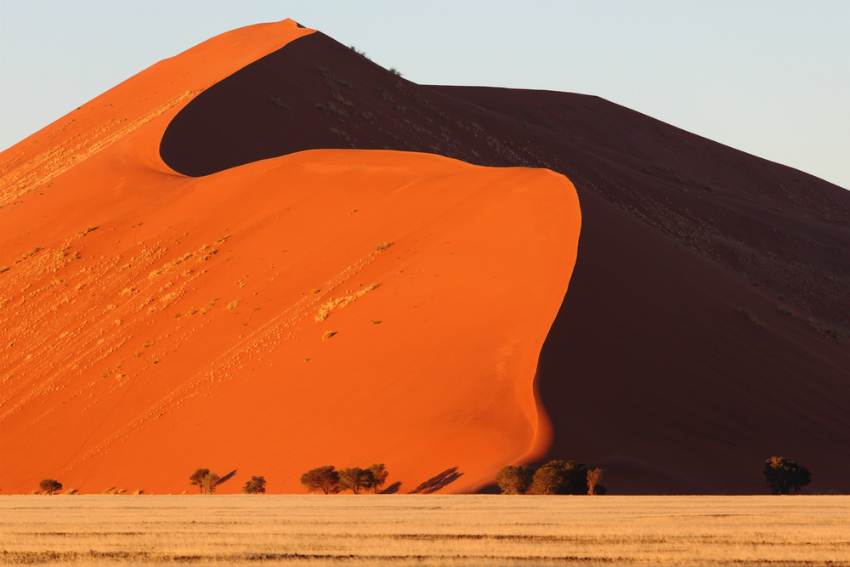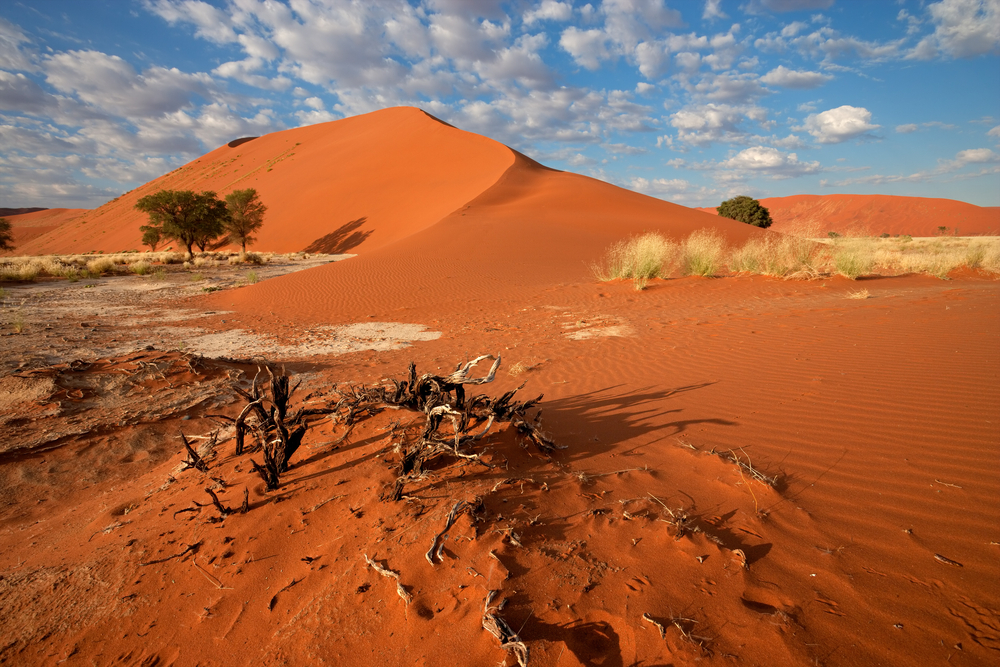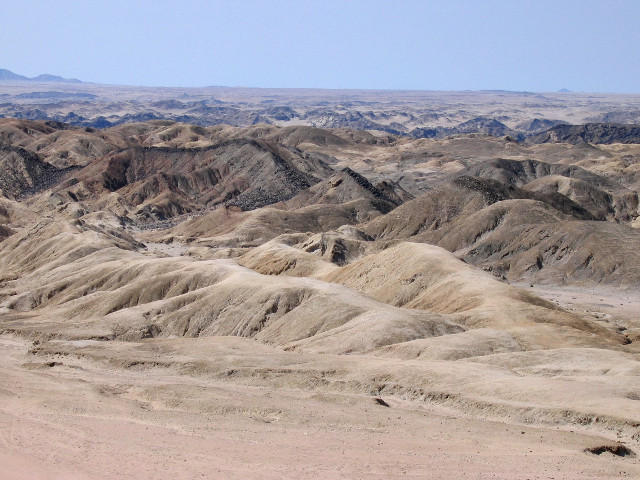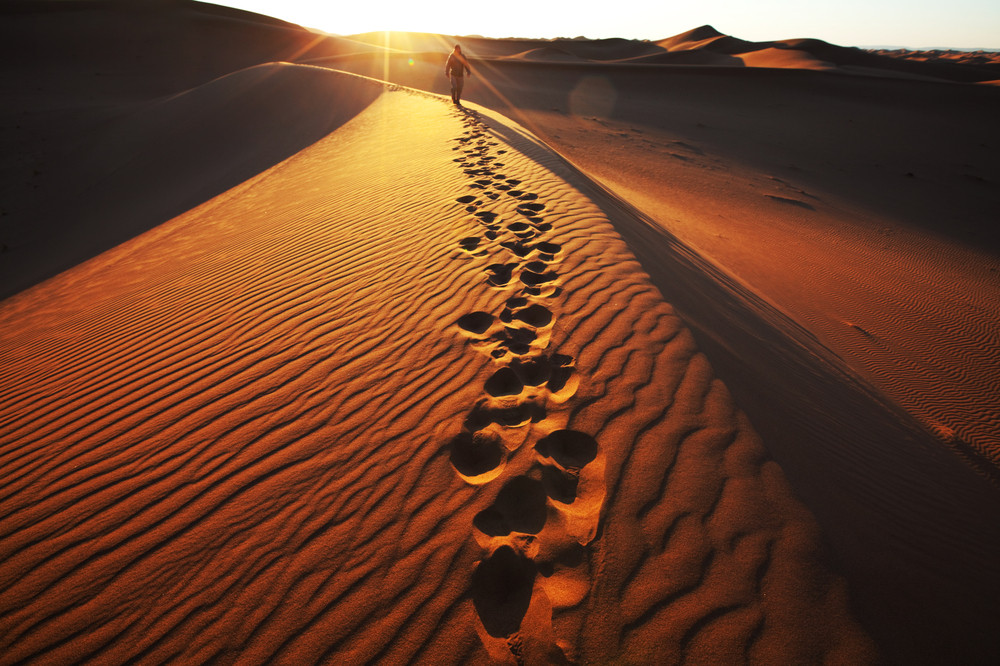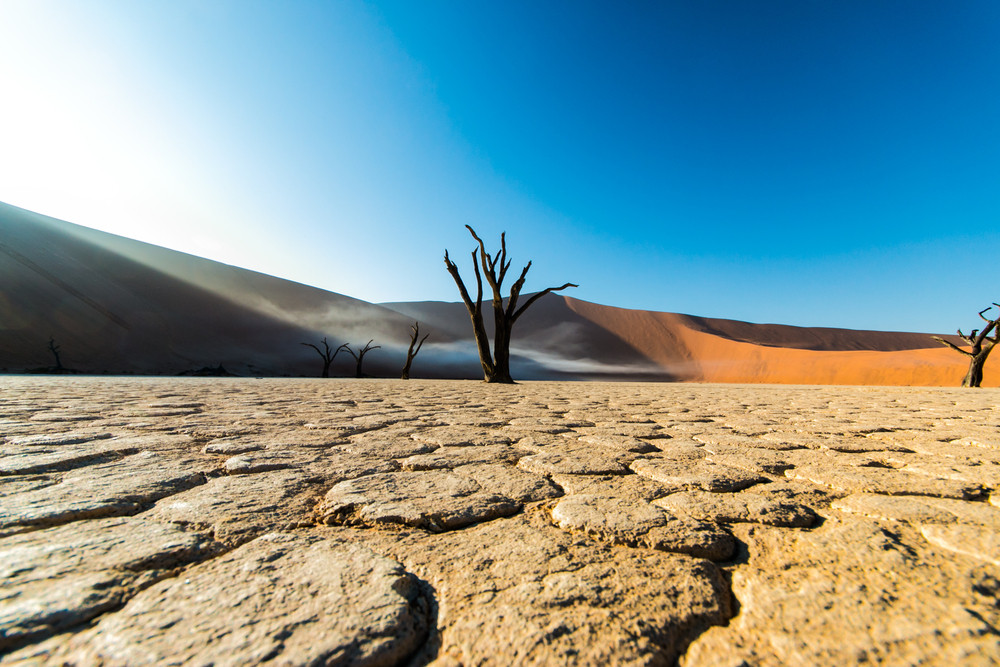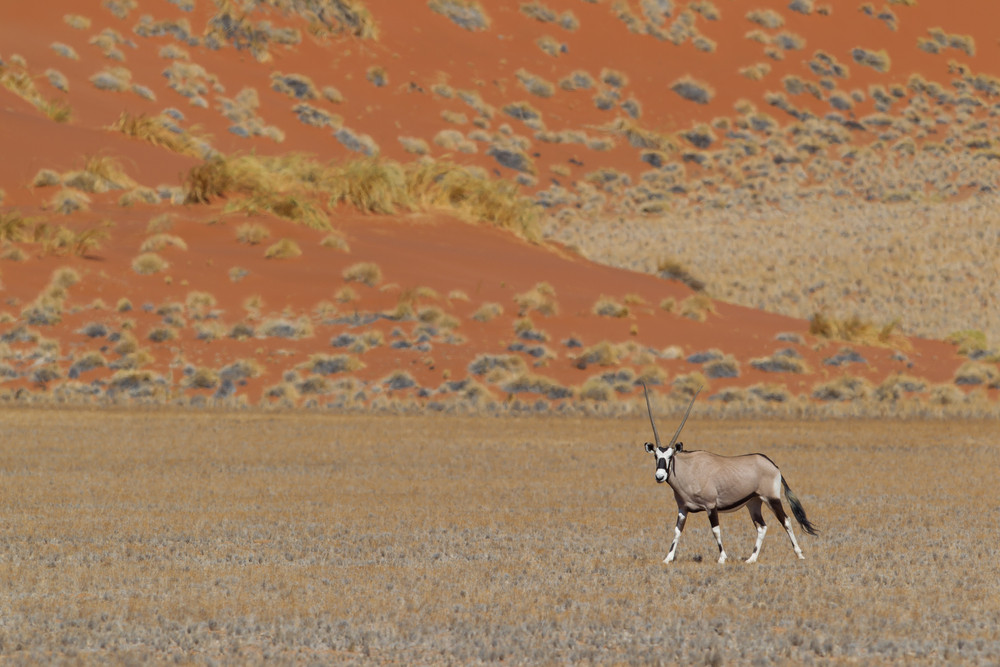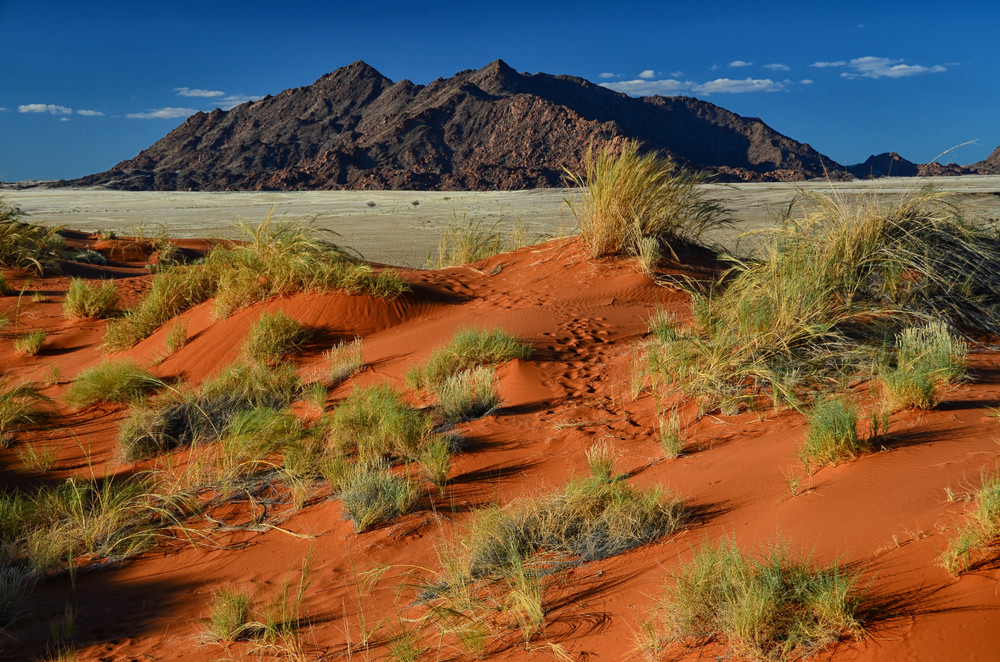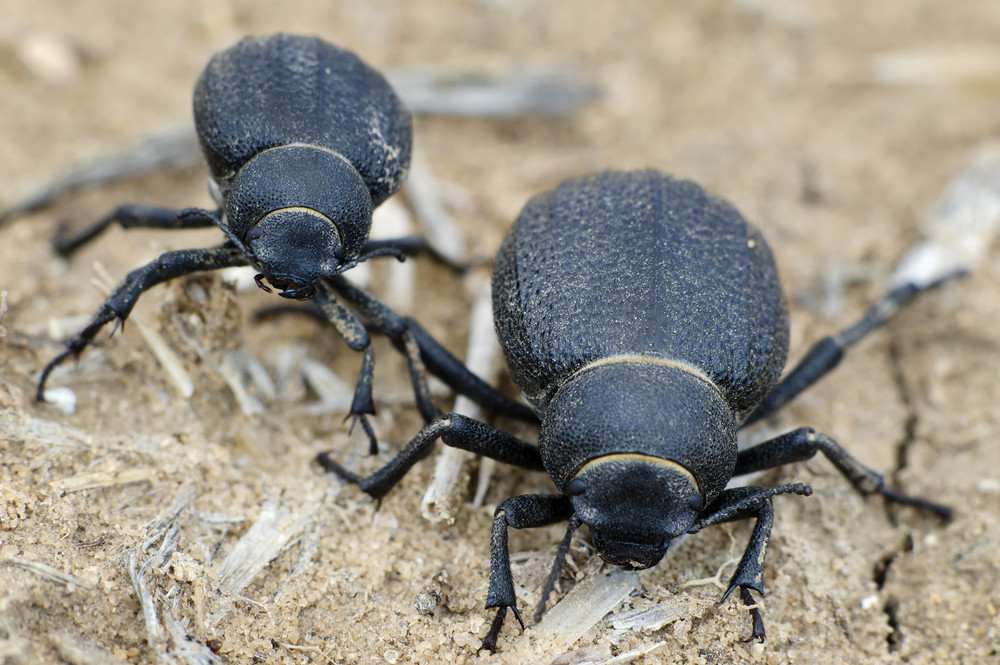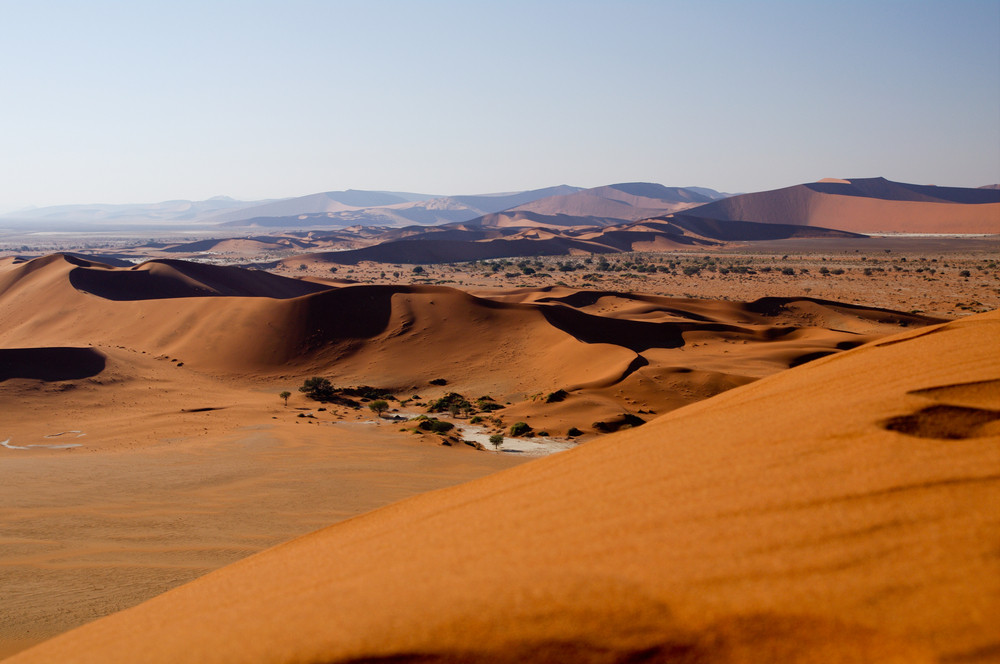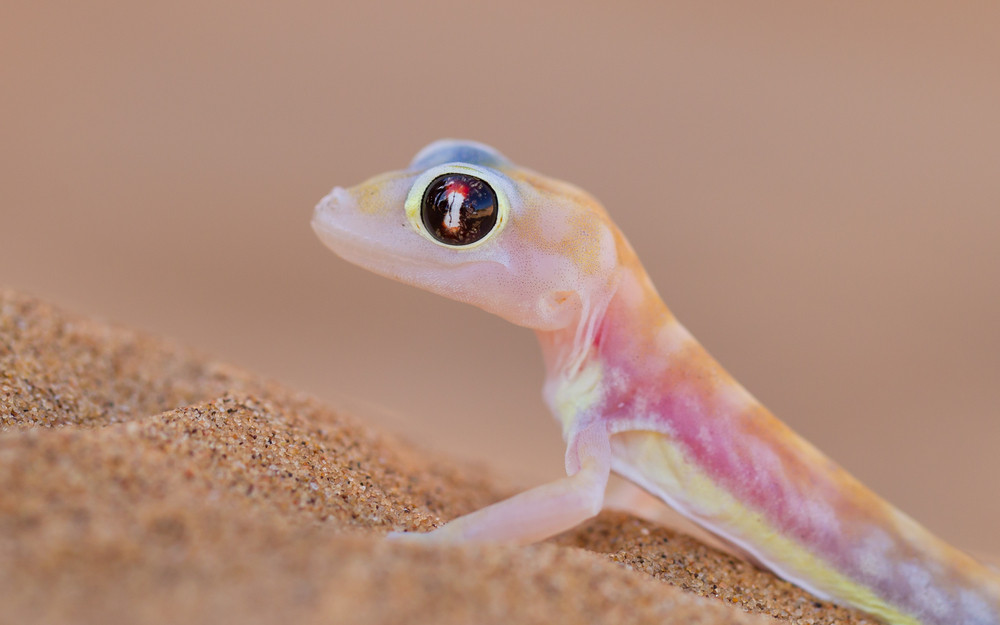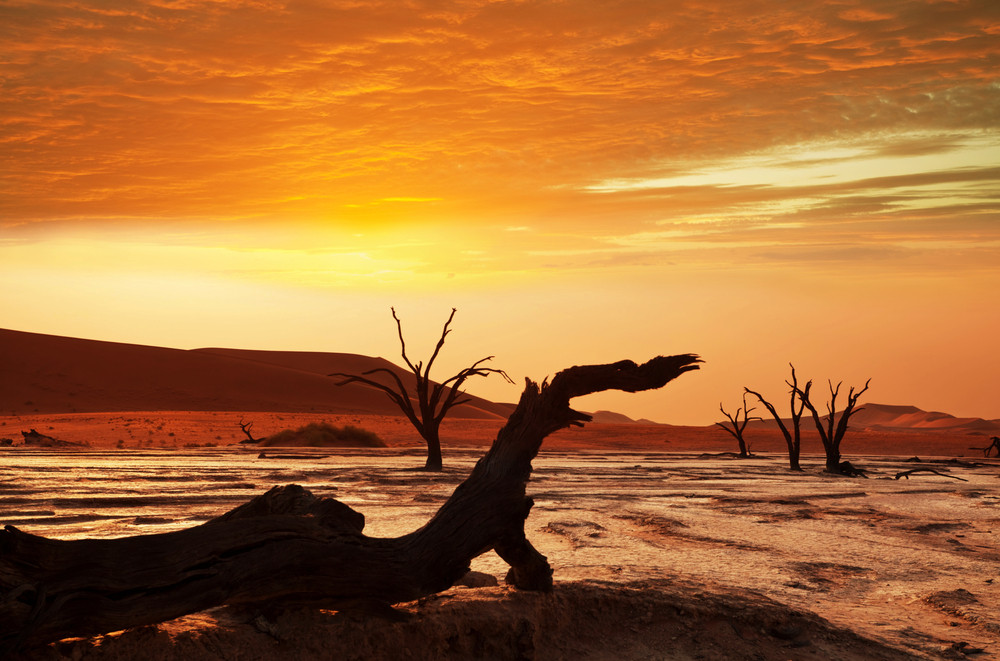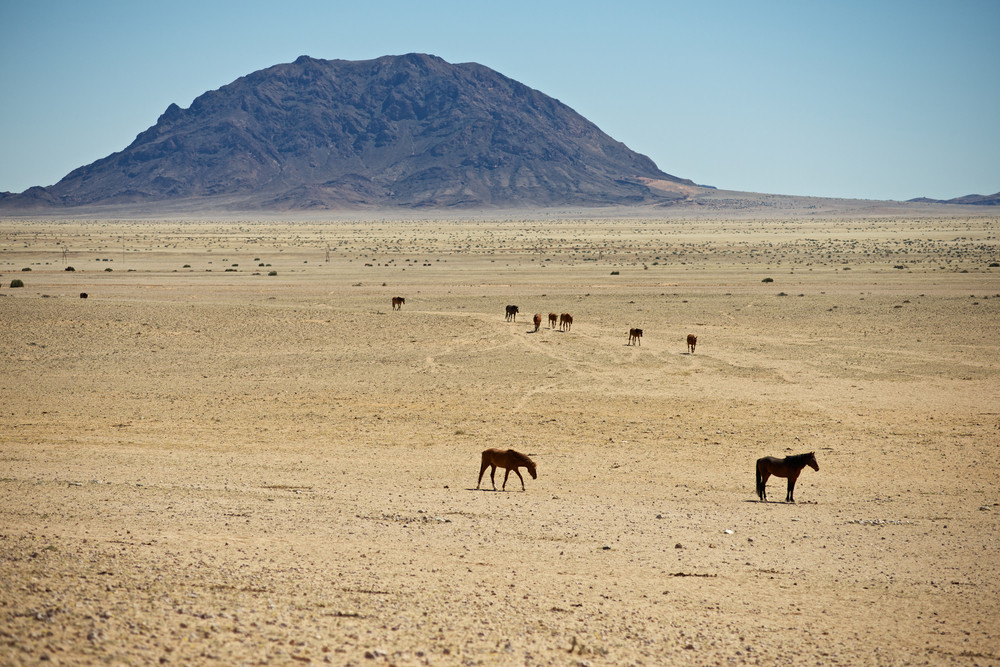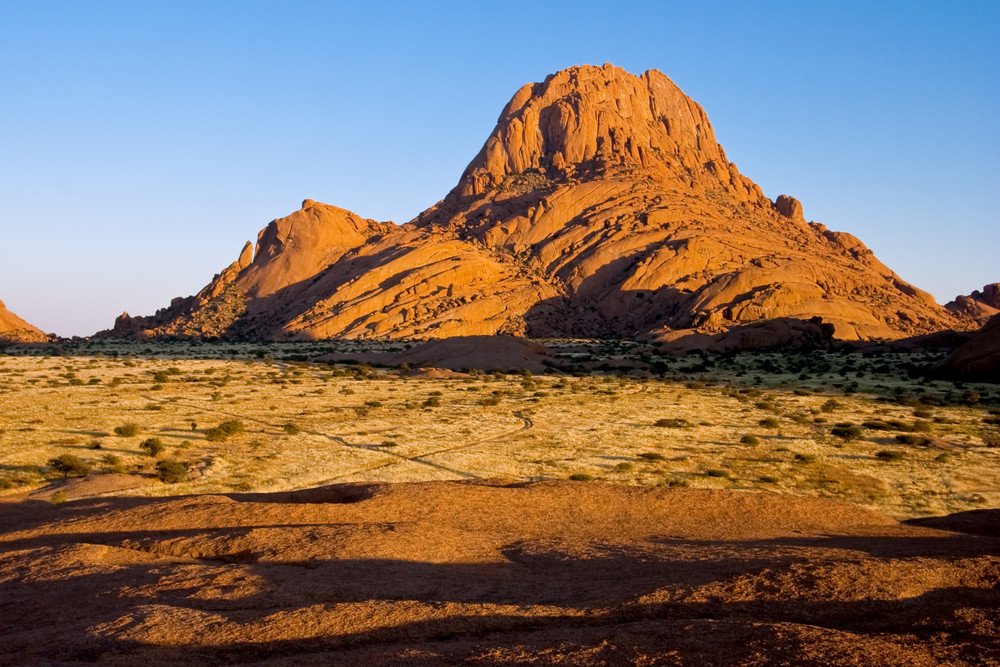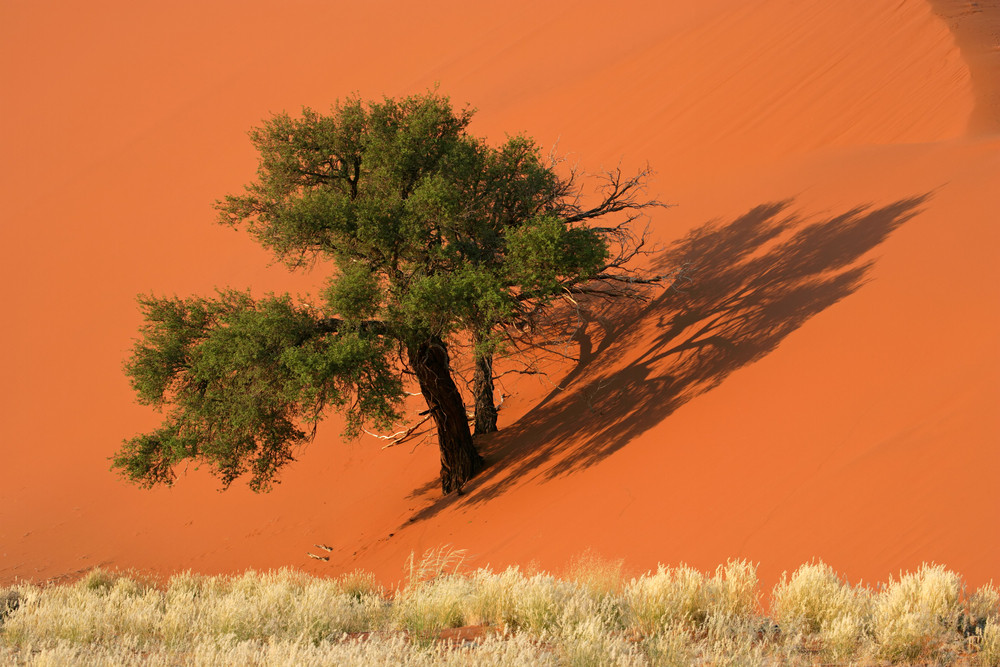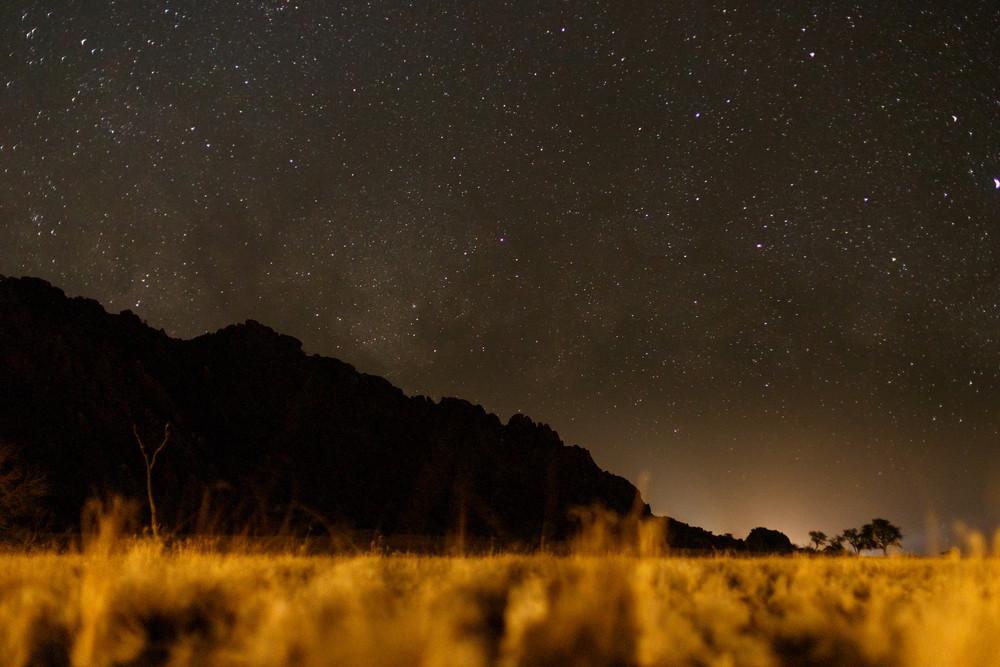Namibia is one of the driest places on earth and home to the oldest desert in the world. But it’s not devoid of life or points of interest — in fact, it’s a place where wildlife has adapted to the environment over the centuries, and it’s replete with near-mystic scenery that travelers can marvel at with awe. Here are some interesting facts and great reasons you should go to Namibia’s Namib Desert, the world’s oldest.
The Dunes Are Massive
Dune 45 (pictured above) is just one of the massive dunes in the Sossusvlei area of the Namib Desert. At over 170m high, it’s composed of 5 million year old sand from the Orange River and the Kalahari Desert.
Plants Still Grow Here
Even though its one of the most extreme environments on earth, quite a bit of plant life is able to grow. Some of the plants include lichens, succulents, shrubs and ephemerals.
Parts Of It Look Like The Moon
Deep in the desert, much of the terrain starts to look like something you’d see on the surface of the moon. The area pictured above is aptly named Moon Valley.
It’s A Great Place To Go On A Hike
Hiking through the Sossusvlei dunes is a hauntingly beautiful experience. The dunes, which reach as high as 900 feet, are one of Earth’s oldest and driest eco-systems.
Deadvlei
Deadvlei is a white clay pan located near Sossusvlei, inside Namib-Naukluft Park. It’s so dry here that wood cannot even decompose. The trees pictured above are 800 years old and long dead, but they’re going to be there for a while longer.
Gemsbok Roam Here
Also known as oryx, gemsbok have spectacular horns and can be sighted from time to time in the Namib Desert. They can withstand the heat of the area due to an intricate system of blood vessels and nasal passages which cool air before it reaches the lungs and brain.
Elim Dune, Sossusvlei
Another beautiful dune is Elim Dune, which you might have already seen a few times, as it is commonly photographed. It’s covered with a bit of grass and pretty easy to climb if you find yourself there.
Desert Beetles
Not only is the desert home to large animals like the gemsbok, it’s also home to little guys like the Namib desert beetle. These beetles have evolved over many years to obtain water from the air using the tiny bumps on their backs. Look closely and you’ll see them.
The Dunes Go On Forever
The dunes of the Namib Desert seem to go on forever. Some are over 300m high, and 32km long. They are only outranked by the slightly larger Badain Jaran Desert dunes in China.
Lizards Are Lurking
One of the more interesting creatures of the Namib Desert is the web-footed gecko. This peculiar lizard is almost translucent and its unique neutral color allows it to blend in with the sands of the desert.
Deadvlei Part 2
This valley is so hauntingly beautiful that it was used in several films, including that crazy opening scene from the movie “The Cell.” And it’s no wonder the director chose to shoot the film there — the contrast between the black trees and salt pans allows cinematographers to create striking images with little effort.
You Can See Wild Horses
Even horses have been able to adapt to the harsh environment of the desert. These wild horses live in the barren plains around Garub on the eastern fringe of the Namib Desert.
Spitzkoppe
German for “pointed dome,” Spitzkoppe is a group of granite peaks located between Usakos and Swakopmund. And as we mentioned early, this desert is old… really old. In fact, the granite at the peak is estimated to be over 700 million years old.
Yes, There Are Acacia Trees
Acacia trees can survive in the Namib desert, too. But you won’t get a stereotypical photograph like you would of acacias in other parts of Africa — it’d probably look like the photo above.
It’s a Great Place For Stargazing
The desert offers uncompromised views of the night sky, far away from the large cities of Africa. One of the best places to go is the Sossusvlei Desert Lodge, which has its own observatory.
More from AFKTravel:
5 Off-The-Radar Namibia Travel Experiences For Explorers
Where To Go Wine Tasting In Namibia
The Not So Typical Hotels Of Namibia’s Skeleton Coast
This article was originally published February 16, 2015.
Want to discover the finer side of Africa? Sign up for our weekly newsletter.
